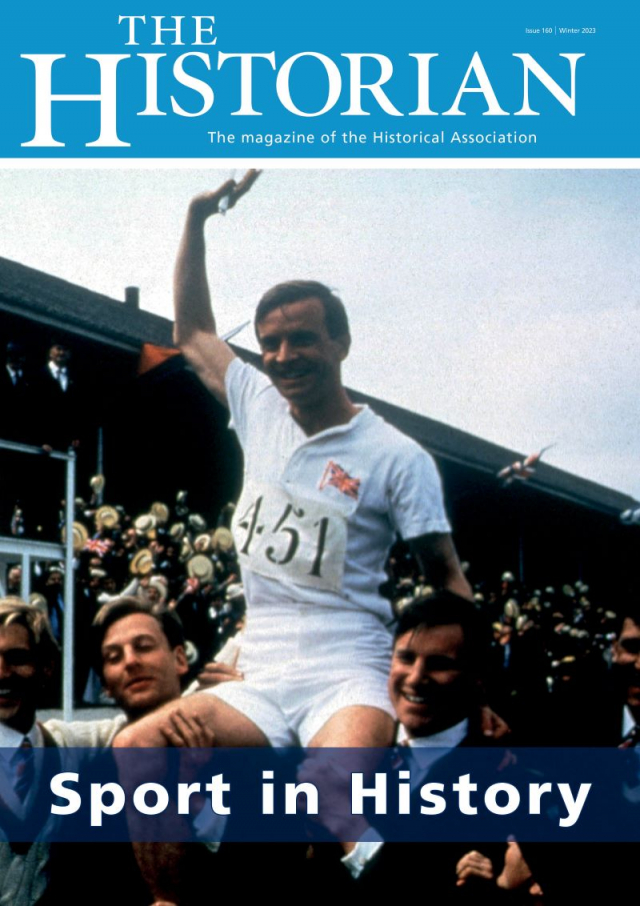The Historian 160: Out now!
The magazine of the Historical Association

Editorial: Sport in History
Read The Historian 160: Sport in History
This edition of The Historian has a focus on sport in history. A story told by Duncan Stone in his article here suggests that this particular theme may need some justification, as an eminent professor dismissed a doctoral study of the history of cricket as ‘not proper history’. Other historians would disagree with this professor and see great value in the study of human sporting endeavour through the ages. Geoffrey Moorhouse suggests that we can learn a great deal about the development of human society through examining people at play, as much as we can learn from their activities at war and at work. American historian Barbara Tuchman has argued that ‘in human activity, the invention of the ball may be said to rank with the invention of the wheel’.
The history of sport provides insights into how individuals have coped with both triumph and disappointment. It also reveals how societies organise themselves through the making or breaking of rules, the degree to which they promote fairness and their encouragement or prohibition of certain leisure activities at crucial times. Sport has impinged on political decision making at the highest levels throughout history. The ancient Olympics became an expression of the political rivalry between Greek city states. Roman emperors provided sporting spectacles to help control and sway the masses. Medieval English monarchs and Oliver Cromwell’s republican government banned the playing of football on occasions, for different reasons. The ‘Bodyline’ cricket series in the 1930s brought relations between the British and Australian governments to breaking point. Boycotting the Olympics in the 1980s became an important tactic for both American and Soviet politicians during the Cold War. In 2021 senior members of the British cabinet clashed openly with the England football team over whether ‘taking the knee’ on the sports field was the best way to challenge racism.
Many of these key political and social manifestations of sport in history are examined in the articles in this edition. The prevalence of social elitism during the 1924 Olympics and throughout the entire history of cricket is explored, revealing a lasting impact on sport in particular and society in general. Articles about women boxers and a remarkable woman swimmer provide insights into the development of attitudes to gender at different times in history. The history of London’s White City Stadium is examined through the lens of modern concepts such as sustainability and ‘sporting legacy’.
Other articles provide engaging stories of various people, places and institutions. There are examinations of the public and private lives of a German mercenary who fought against the British in India and of an eminent Ulster novelist. Both the Somerset town of Taunton and the Buckinghamshire village of Brill had historical significance at different times in history and these are explored in our regular Out and About and My Favourite History Place features. A Young Historian prize-winning essay tells the story of the BBC German Service in the Second World War. An opinion piece examines critically the ‘man of his time’ argument that has been used occasionally to justify questionable behaviour in the past.
It is hoped that all our readers will find plenty of interest in this edition, whether they are sports fans or not. Please feel free to send your thoughts to our letters page (via thehistorian@history.org.uk). We wish you all a happy and healthy 2024.

